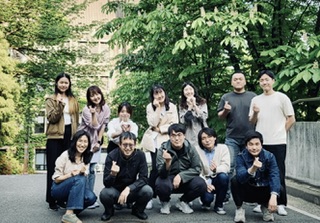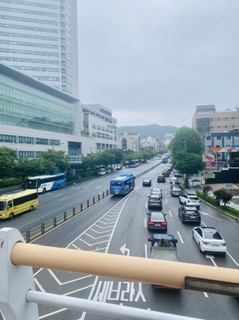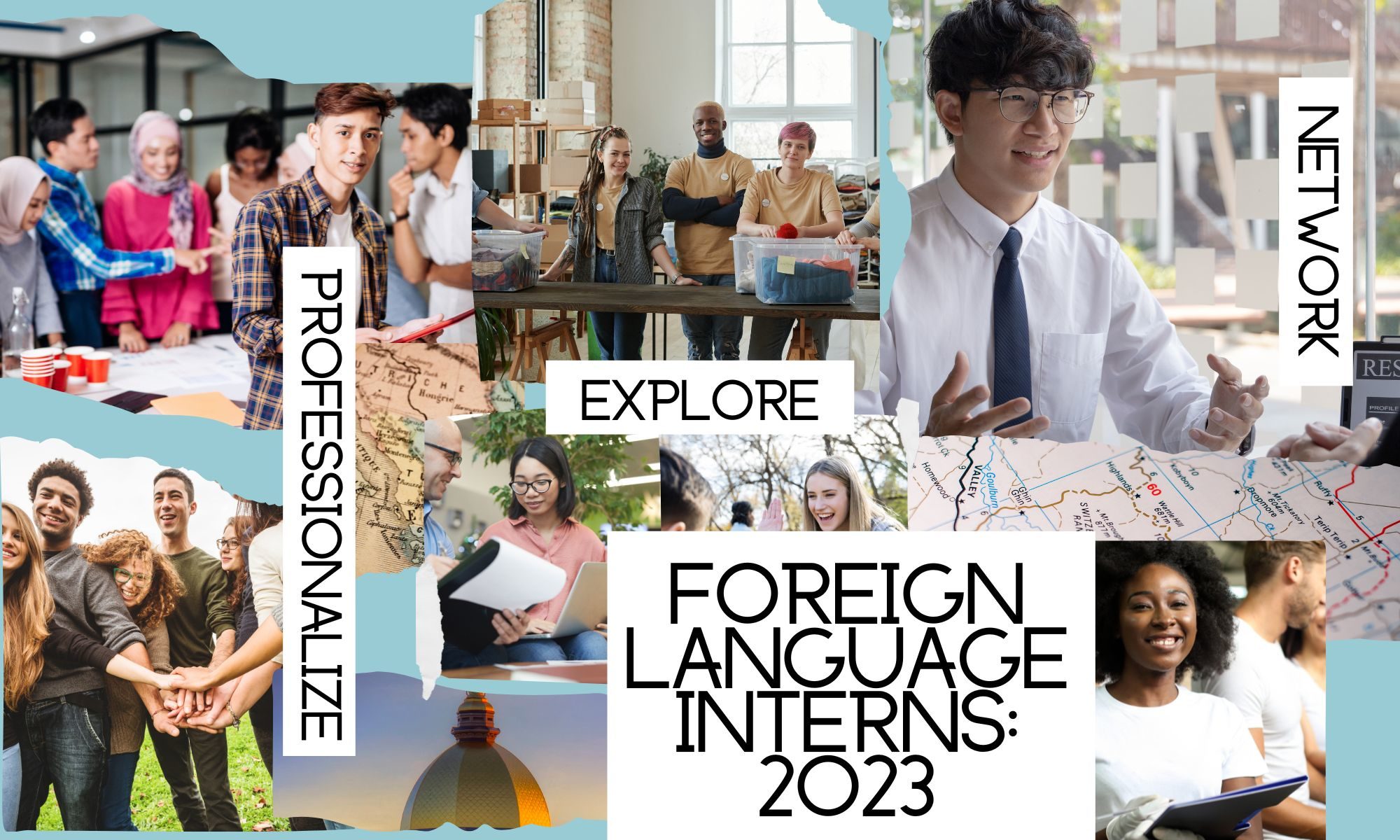“색안경을 끼고 보지 마요 / 난 좀 다른 여자인데 / 겉은 화려해됴 아직 두려운 걸…” (“Please don’t look at me with your tinted sunglasses / See, I’m a bit of a different type of woman / Even though I may look gorgeous on the outside, I still feel afraid…”)
While we’re on the topic of stereotypes, I thought it’d be a good idea to direct you all to a song, especially since it’s on theme as a K-Pop song while I’m in Korea, and it ties in perfectly with my running metaphor of “cultural glasses”: “색안경 (STEREOTYPE, although the literal translation is “Sunglasses”)” by 스테이씨 (STAYC).
So, now that you are somewhat introduced to my topic for the day… stereotyping! Coincidentally, as I hinted at in my caption for the music video, the research that I am studying happens to be on the topic of the psychological processes behind stereotypes, so this blog post’s theme seems to nicely suit my life at its current stage. I actually brought this coincidence up in conversation when I was walking to lunch with the lab director and the lab member that I was interviewing, and the lab director joked that he was a “clairvoyant” of some sort, since he was the one who had directed me towards the topic of stereotypes in the first place.

Anyways, firstly, I think I should introduce the lovely lab member who I had decided to interview. Her name is 지은 (“Jieun”), and she is a Korean PhD student with a particular interest in eye tracking and visual search in the VCC lab at Yonsei. In particular, she seems to be interested in facial recognition, which is really cool to me, since it has a connection to my current interest in social psychology. At first glance, she appears to be one of the more extroverted members in the lab, and she was one of the people who reached out to me first when I had just arrived. She really helps me feel more welcome by encouraging me to speak both in Korean, when I’m comfortable enough with it, and in English, when I’m struggling with my Korean skills. Throughout my time in the lab, she has always been so friendly and inclusive, and she continuously checks on me to make sure that I am doing alright.
As I talked more with Jieun, I realized that one of the reasons why she appeared to be so confident in her English skills was that she had been an exchange student in the United States for one year, and then, the following year, the friends that she had made in America came to Korea as exchange students themselves. So, essentially, she had two years of practice with the English language and interaction with American students. Before knowing this, I had actually been surprised by her answers to my questions on stereotypes, because the first heterostereotypes — that is, stereotyping from another group’s perspective — that she had mentioned were incredibly positive.
The first thing she mentioned was that Americans were “optimistic” and “always willing to cheer other people on.” Without any context, this was really odd for me to hear, since, honestly, the previous times I had interacted with international students, their collective view of American students appeared to be rather negative. However, in light of her friendly experiences and her close relationships with American citizens in the past, her positive view of the United States makes a lot of sense. I do know that any American who is simply acting as a good friend would fulfill that positive stereotype easily; in fact, while I do not really tend to be a very optimistic person, I know that I act super optimistic and constantly attempt to cheer my friends up whenever they are down. I can definitely see where Jieun is coming from when she stereotypes American students as optimistic, since those are the typical behaviors of a good friend, at least among American university students.

As we continued to talk, Jieun proceeded to note that Americans appeared to be “quick to move on after a breakup,” which was another surprising heterostereotype to me. Though I have personally known American students that fulfill that stereotype at Notre Dame, I have always had trouble believing in it, because, from my personal experience, moving on from heartbreak has always been incredibly difficult and painful. However, considering what I know about hookup culture in the United States as well as my firsthand experience with acquaintances who were able to move on from breakups relatively quickly, I can see how this stereotype may have come to be. I cannot really tell if this is a positive or negative stereotype, especially considering the differences between Korean and American dating culture, but I suppose it depends somewhat on the situation. Either way, this stereotype took me off-guard, partially because I did not think I could relate to it. Yet, maybe, in some contexts, I could appear to move on more quickly in comparison to the average Korean student. I would not be able to truly know this unless I asked around a bit more.
The final heterostereotype that Jieun stated was really interesting, since it looked like it contradicted one of her initial stereotypes: she said that the Americans who had come to Korea during her friends’ exchange period were “pessimistic.” My lab director even built upon this stereotype by going over some of his personal knowledge of summer school in an American university. As we continued to discuss this topic, we came to the conclusion that the “optimistic” versus “pessimistic” outlook varied greatly on an individual basis, especially keeping in mind the fact that each American university appears to have its own, unique culture. This “pessimistic” stereotype makes more sense to me than Jieun’s initial “optimistic” one, simply because I, along with many of my own American friends, tend to be on the more pessimistic side.
Looking at the stereotypes provided and applying my own autostereotypes — or stereotyping from my within group perspective — it seems that the only autostereotype that aligns with Jieun’s heterostereotypes is that some Americans are “pessimistic,” and this is solely because I can base it off of my personal viewpoints. Additionally, whenever I view American news or log onto social media, I only ever see pessimistic attitudes and complaints from American citizens on the pressing issues. In the cases where I do see some optimism, it almost appears to be either sarcastic or insincere. So, when Jieun said that she believed that Americans were “optimistic,” I was incredibly taken aback, as it did not seem to be in agreement with my personal experiences as an American student.
I was similarly shocked at the heterostereotype that Americans had a “willingness to cheer people on,” and I think this, again, was based on personal experiences I have had. I grew up in a competitive educational environment, and so, I was well-aware of how cutthroat competition in America could be. This was also why I seem to have taken up a contrasting autostereotype of Americans as “competitive” or even “selfish” in some cases. Regardless, I can definitely see how this stereotype can form in the eyes of a Korean student, since the Korean education system is unbelievably intense in its own right. Some of the competition that I had to deal with would likely hold different weight for a Korean student. This is not to say that one of us works harder than the other; rather, the amount and type of pressure in the educational field is very different from one country to another. Therefore, it is likely that Jieun may have simply seen a different side of American students that I did not experience due to our different backgrounds.
Furthermore, I was also somewhat surprised that Jieun thought Americans were able to “move on easily after a breakup,” but this confusion also makes sense in light of the “selfish” autostereotype that I had previously mentioned. Additionally, as I had alluded to before, dating culture in Korea and America is very different. What one country considers to be “dating” varies drastically from what the other believes to be “dating.” For this reason, what constitutes a “breakup” could also differ dramatically. Not to mention, the ability to move on from relationships simply varies from person-to-person and relationship-to-relationship. So, depending on the personalities and relationships of the students that Jieun had gotten to know, this view could easily change. In fact, I think I used to hold a similar heterostereotype of my own with regards to Koreans and their relationships before I had come here, which is an intriguing parallel to consider.
Without attempting to minimize the differences between our two, wonderfully different cultures, I think that the underlying virtues and values of friendship and relationship that all humans share shine clearly through in Jieun’s heterostereotypes of Americans. While some behaviors that seem entirely natural to me may stand out to her, because she is looking at it from another perspective, I can see the same behaviors in her that she had used to describe American students. This is even more evident whenever she has shown any level of care and concern for me. In particular, this past week was really difficult for me due to some personal conflicts with some close relationships from back in the United States, and, through all of it, Jieun was constantly cheering me on and helping me think more optimistically about the situation. She even offered possible solutions and advice. Though she may not have realized it herself, she was filling her own heterostereotype of an American student, and, in doing so, she was comforting me. I could not have been more grateful, because, even though we do not know each other well, and we come from different backgrounds, she was treating me like a friend. I think that this scenario shows that some positive heterostereotypes may actually implicate the existence of shared, universal values such as friendship and genuine care for others among all human beings.
Reflecting on possible Korean heterostereotypes of Americans (specifically, American students, since that is the group Jieun had the most experience with) has been very interesting, especially since Jieun seems to view my group in a generally more positive light than I do. I suppose that the formation of positive heterostereotypes is a natural response when someone has had good experiences with a country, and Jieun would probably think similarly of my American heterostereotypes of Koreans that I had held prior to my arrival in Seoul. Because I had such a wonderful time in South Korea the last time I was here, I think I overly generalized those positive feelings and romanticized the country a bit too much in some senses. While I was talking with another intern at this lab, something that he said stuck with me, and I think it is very applicable to this discussion of stereotypes: “Overgeneralization across entire groups can be very dangerous.” He was likely referring to the vast amount of foreigners flooding Korea due solely to the Korean Wave, without any other background knowledge of the culture, but I think that this is still generally an important statement to keep in mind whenever someone interacts with another country.
Humans are beautifully complicated creatures, and, in attempting to categorize someone based solely on one or two characteristics, we may deprive ourselves of the full experience of the person before us while simultaneously dehumanizing them. For this reason, I believe it is incredibly important to be aware of the many stereotypes we utilize in everyday life and to always do our best to view everything in as objective and holistic of a light as humanly possible. So, I would like to add a few clauses to my “cultural glasses” metaphor by gently warning against any “stereotypical tinting” that may affect the color and clarity of our overall vision of others. After all, in any relationship, it is truly about getting to know the real, complete person, right?
Sincerely,
Sara Anne

P.S. For a bit of a more fun example of stereotyping, when you look at the road in the image above, what is your first impression of the area? How would the weather, the amount of cars, or the types of building in the shot affect it? Can you think of various ways in which looking at this one scene through different “tinted lenses” could affect your initial impressions on the location or Seoul as a whole, and how do you think I, as a foreign language exchange intern, feel about this particular road?
